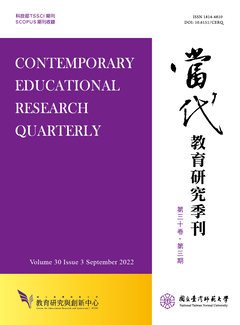

研究目的
國際學校的發展反映出教育全球化的現象,而國際文憑課程也在這個過程中扮演著重要的角色。隨著近年來亞洲地區國際文憑學校數量的增長,學校層級如何回應全球化所帶來的種種影響成為有待探索的課題。本研究採取地方性全球化的角度,透過國際文憑學校的視角,藉由與臺灣、新加坡與香港三地的國際文憑學校合作,探究地方性的全球化現象。
研究設計/方法/取徑
本研究蒐集香港、新加坡與臺灣共 16 所國際文憑學校教職員的訪談資料,以及相關的政策與課程文件並進行分析。其中,半結構式訪談的研究參與者包括國際文憑學校的教師、主任、課程負責人,以及校長等。透過這些資料,本研究討論國際文憑學校在各個面向上,如師生組成、語言使用、課程與教學、在地教育市場定位,以及世界主義等教育全球化現象。
研究發現或結論
透過分析臺灣、香港與新加坡國際文憑學校的文件與訪談資料,本研究討論國際文憑學校重新再現了當代全球化社會中,學校的國際化特質。國際文憑學校一方面必須設法透過各種措施維持其國際化的特徵,並調整校內師資聘用、課程與教學設計,甚至學生的學習方式。另一方面,為了能順利在所在地社會中實施國際文憑課程,學校也需要透過額外的銜接課程、語言政策的磨合等,以適應當地教育環境。
研究原創性/價值
國際教育是教育全球化的產物之一,針對國際教育的研究,除了對於各國國際教育政策的分析與討論之外,近年來隨著我國國際教育政策的持續推動與調整,個別學校如何因應調整,也成為熱門課題。本研究希望能提供學校層級國際教育的分析,並且透過跨國研究的視角,增進對於國際文憑學校的理解。
教育政策建議或實務意涵
中小學國際教育已然成為我國近年所推動的重大教育政策之一,本研究冀能透過探究國際文憑學校所面臨的機會與挑戰,增進吾人對於國際教育的了解。
Purpose
The growth of international schools reflects the current trend of globalization in education. The expansion of International Baccalaureate (IB) programs plays a key role in this process. With the recent growth of IB schools in Asia, investigating how these schools respond to this trend is imperative. Accordingly, this study explored the enactment and practice of international education in current vernacular globalization, focusing on IB schools in Taiwan, Hong Kong, and Singapore.
Design/methodology/approach
Semi-structured interviews were conducted with school leaders, section chiefs, coordinators, and teachers. In addition, relevant curricular documents were obtained. Interview data and documents from 16 IB schools in Hong Kong, Singapore, and Taiwan were analyzed. This study probes into the contexts of schools, such as teacher and student demographics, language use, curriculum and instruction, marketing and positioning strategies, and cosmopolitanisms.
Findings/results
The study discussed how current internationalization on school level is represented in IB schools in Taiwan, Hong Kong in the contemporary globalization. IB schools nowadays not only have to construct their internationalities, but also have to continuing adjust their teacher recruitment, curricular and instructional design, and students' learning. In order to enact IB programs into local contexts, schools develop strategies such as offering bridging courses and negotiating language policies.
Originality/value
This study expands the body of literature on international education, particularly on how individual schools implement international education policies and how these policies transform their education systems. By adopting a cross-national perspective, the present study offers valuable insights into the practice of international education from the perspective of individual schools.
Implications for policy/practice
International education in schooling has become a pivotal policy focus in Taiwan. This study improves the understanding of the opportunities and challenges faced by IB schools and the broader field of international education.

This work is licensed under a Creative Commons Attribution-NonCommercial 3.0 Taiwan License.
Center for Educational Research and Innovation, National Tawain Normal University
162, Ho-Ping East Rd, Sec. 1, Taipei, Taiwan | Tel:+886-2-7749-3670 | E-mail: cerecerq@gmail.com
CERI | NTNU | E-mail Alerts | Open Journal System
© 2014 CERI-NTNU
